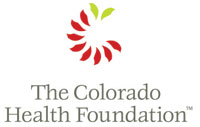What if Colorado ranked No. 1?
2014 Colorado Health Report Card explores where and how Colorado can improve

Kate Alfano, CMS contributing writer
For the past eight years, the Colorado Health Foundation has published the Colorado Health Report Card, an annual update on the current status of health, health care and health coverage in Colorado using data provided by various sources.
The report card, which is produced in conjunction with the Colorado Health Institute, provides data on 38 key health indicators over five life stages: Healthy beginnings, healthy children, healthy adolescents, healthy adults and healthy aging.
A letter grade is assigned to each of the five life stages, along with Colorado’s rank from best (1) to worst (50) among all states. In this way, the report card provides a comprehensive picture of the health of Coloradans and where we need to improve.
2014 report card revelations
- Healthy beginnings – C (grade), 23.8 (rank)
- Healthy children – C, 24.8
- Healthy adolescents – B, 15.2
- Healthy adults – B, 15.2
- Healthy aging – B+, 11.5
This year’s report card supplement explored national and local initiatives that are tackling some of the toughest issues affecting the health of Coloradans. The supplement, “A Roadmap to Number One,” illustrates what it would mean if Colorado were to achieve the top ranking in each particular indicator and focuses on best practices within key indicators that could help Colorado make vast improvements in health and health care.
If Colorado ranked No. 1:
- 7,000 more babies would be born to mothers who received timely prenatal care
- 66,600 more children would engage in 20+ minutes of vigorous physical activity four or more days per week
- 27,600 fewer adolescents would be living in families with incomes below the poverty level
- 458,200 fewer adults would be uninsured
- 137,600 fewer Coloradans would report poor mental health and
- 21,600 fewer older adults would report limited activity due to poor physical or mental health
Reduced cost connections
Improving these key health indicators correlates directly to health care costs and improving them could have a large impact on reducing health spending in Colorado. For instance, preterm births account for approximately 35 percent of all health care spending on infants in the United States. Regular prenatal care is important in identifying risk factors for preterm births. And children who are not physically active are more likely to become obese, which increases their risk for many other health issues. Colorado spent $1.6 billion treating diseases and conditions related to obesity in 2009.
Using the Colorado Health Report Card, stakeholders can set ambitious goals to improve the state’s rankings and grades, directing policy efforts to improve the health of Colorado.
Posted in: Colorado Medicine

Comments
Please sign in to view or post comments.